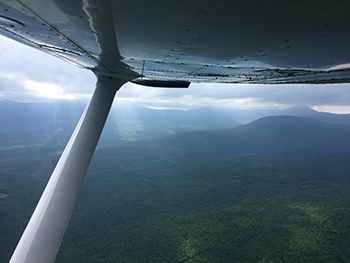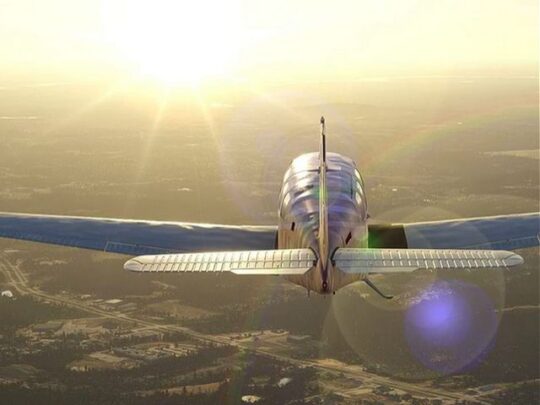Subscriber question:
"Is it OK to depart VFR and pick up my IFR clearance in the air? I've heard different opinions on this." — Peter S.
Doug:
 “As is so often the case: it depends. In this case, it depends on terrain and airspace.
“As is so often the case: it depends. In this case, it depends on terrain and airspace.
There are a lot of dead pilots who took off in marginal conditions trying to avoid a void time, or not wanting to wait for an arriving aircraft to land and cancel IFR. They figured picking up the clearance up in the air would be no problem. Once airborne, they couldn’t get the clearance and maintain separation from the ground in visual conditions and they came to an untimely end in a CFIT accident.
If it’s good VFR conditions up to a safe IFR altitude, you must consider the airspace. Some TRACONs get really unhappy if you call for your clearance once airborne. If they are busy, the last thing they want to do is read you a clearance and have you read it back, all on a busy frequency. In this case, it is possible to get the clearance on the ground and then ask to depart VFR and get the release in the air. Not all TRACONs will do that, but some will.
Even if it’s not busy, when you’re departing an airport near an air traffic control’s boundary, the TRACON overseeing your departure airport might not be able to identify you prior to your exiting their airspace. That makes the handoff to the neighboring ATC facility difficult, if not impossible. Remember: ATC has to identify you prior to issuing you your clearance (or release) in the air, which affords separation not only from terrain, but other aircraft, as you enter IMC conditions.
So, if it’s really clear to a safe altitude, not busy airspace, and you’re not departing towards an ATC facility boundary, it’s OK to do it.
Otherwise, I wouldn’t recommend it.”
Is departing in marginal VFR safe if you're getting an IFR clearance in the air or heading for better VFR?
(Assume your plan is returning to the airport if things look worse once airborne.)

